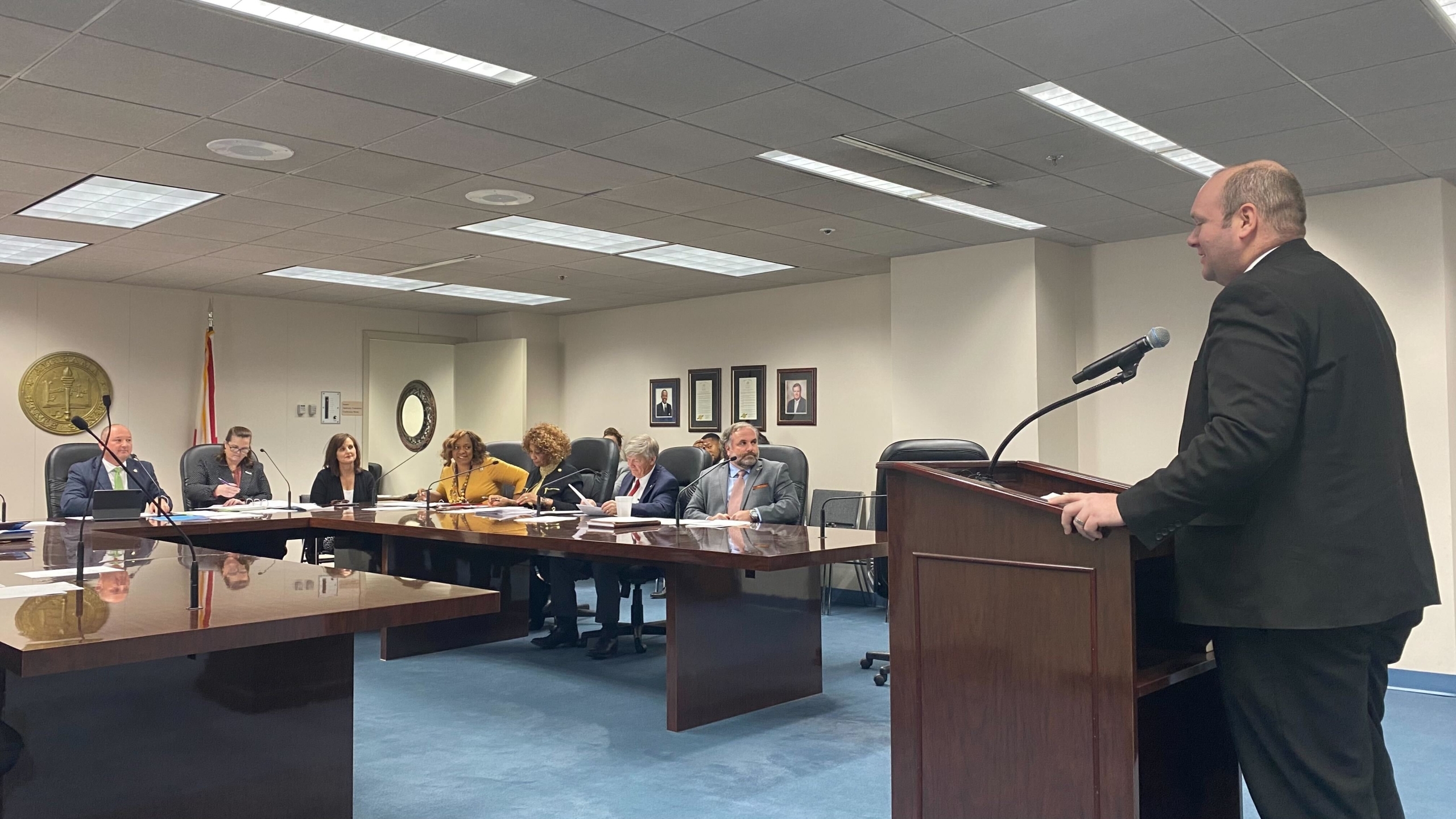A Senate committee narrowly approved a bill Tuesday by a 5-4 vote that would incrementally reduce occupational taxes in Alabama municipalities to a maximum of 1 percent.
The bill, sponsored by Sen. Andrew Jones, R-Centre, would require any municipality that has an occupational tax greater than 1 percent to begin reducing that tax by up to two tenths of a percent each year until the tax is reduced to the 1 percent cap.
“I think there’s a lot of things in this bill that we can agree on,” Jones told members of the committee. “If you are employed by a company and you don’t even work at the headquarters part of the week, you work at home, can we not all agree that you should not have your wages taxed as if you’ve been working in the city for the entire time? Can we not agree that when first responders come in to restore power in a county after tornadoes, that they shouldn’t have had to have 2 percent of their salaries taken out when they came to the aid of their fellow man in Alabama?”
Jones also said it’s onerous for companies to keep up with the hours employees work in multiple cities to determine how much occupational tax needs to be remitted.
A host of mayors and the Alabama League of Municipalities spoke out against the bill during a public hearing.
“With this bill, I worry that we will not be able to provide the services that we have in the past,” Gadsden Fire Chief Will Reed told the committee.“Our city triples in population every day; we have more people working in our city than we have living in our city, so we are having to provide services for these people.
“We currently have seven fire stations and a large portion of our funding comes form this occupational tax … Unfortunately we would have to cut three of our fire stations if this happens. We would lose down to 55 firefighters from 115. Our response times would increase because we would not have as many firefighters responding in vehicles. If this passes our ISO rates will suffer. We currently have an ISO rate fo 2– if you know anything about ISO rates, 2 is almost perfect. I’ve spoken with ISO representatives, if we lose that many fire stations, that many people, we’ll go down to a 5 or 6. Our business recruitment for the City of Gadsden is over, we’ve just been killed.”
ALM Executive Director Greg Cochran said the bill will “tie the hands” of municipalities on how they provide necessary services.
“This is not a good policy when you look at statewide implications,” Cochran said. “You passed a bill two years ago that stopped any additional cities from having an occupational tax without coming to the legislature, so no one else can do this without coming to you first. To continue to beat up on the cities that have one and that need these revenues to do the essential services (is wrong).”
Opelika Mayor Gary Fuller told the committee that the occupational tax has been in the “DNA of the city for 59 years” and is structured to continue supporting the city for another 32 years.
In Opelika, the occupational tax produced $15.3 million in FY22, 19 percent of the city’s annual budget.
“It’s a critical revenue stream for our community,” Fuller said.
One of the key changes made to the bill during the committee session is an amendment brought by Sen. Clyde Chambliss, R-Prattville, that would prevent any reductions in the occupational tax from taking place until current debt obligations secured by the occupational tax are paid in full.
“For any of those concerned about funding for the cities, it was going to take five years to go down by two-tenths of a percent,“ Jones said. “Now if they’ve got a 10- or 12-year bond, it’s going to take up to maybe 17 years so this of you who are concerned about loss of revenue, they’ve got more than enough time now to know that it is coming.”
The bill was also substituted by Sen. Jay Hovey, R-Auburn, to allow for the municipalities to levy the occupational tax on annexations under 1,000 acres to account for the potential for industries already operating under the occupational tax to remain consistent if they expand in the future.
The bill now moves forward to be considered by the Senate in full.





















































